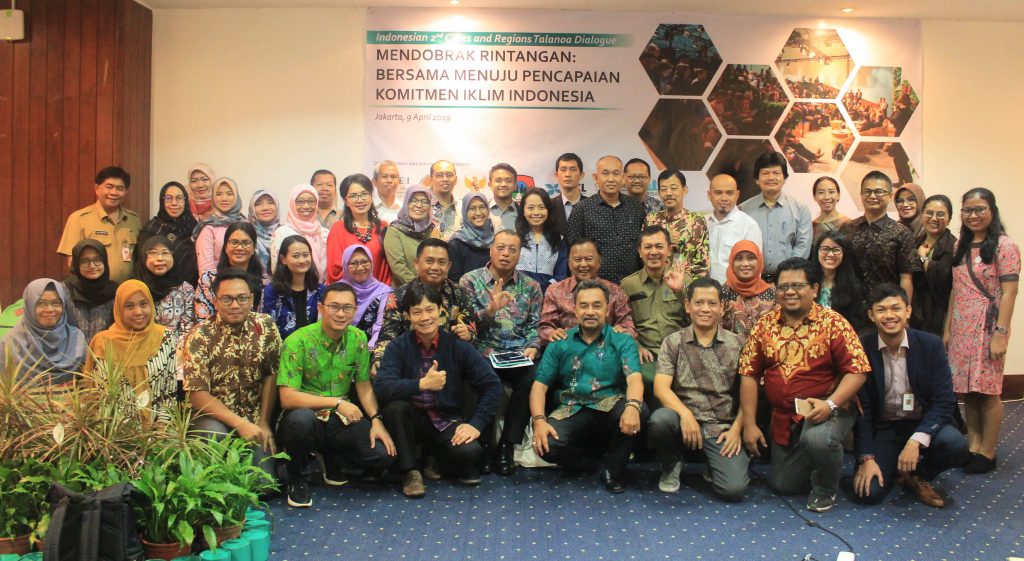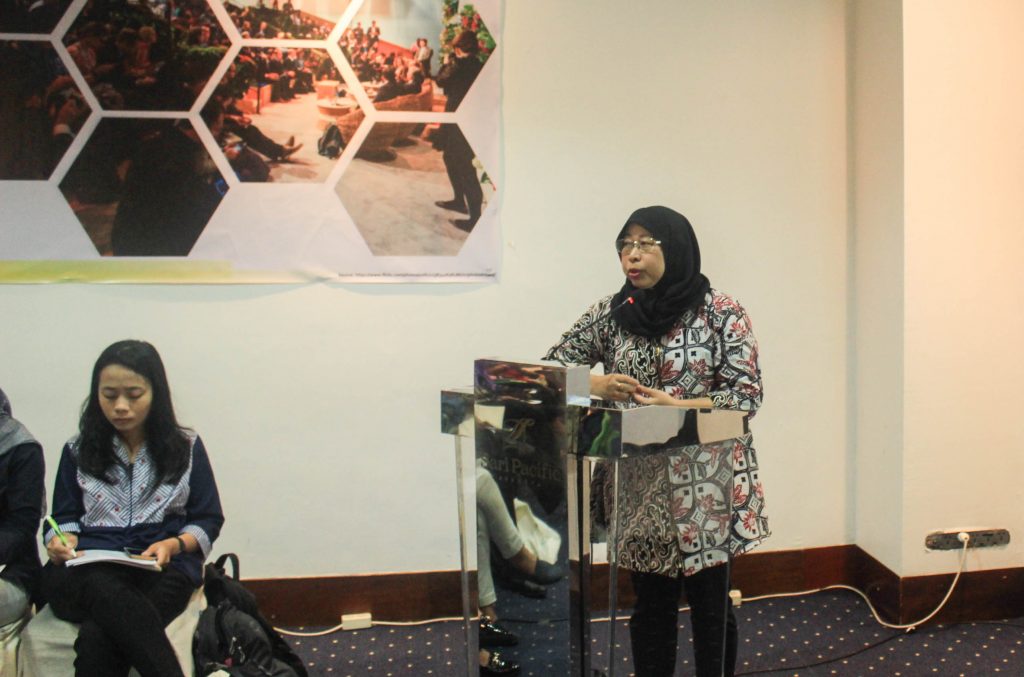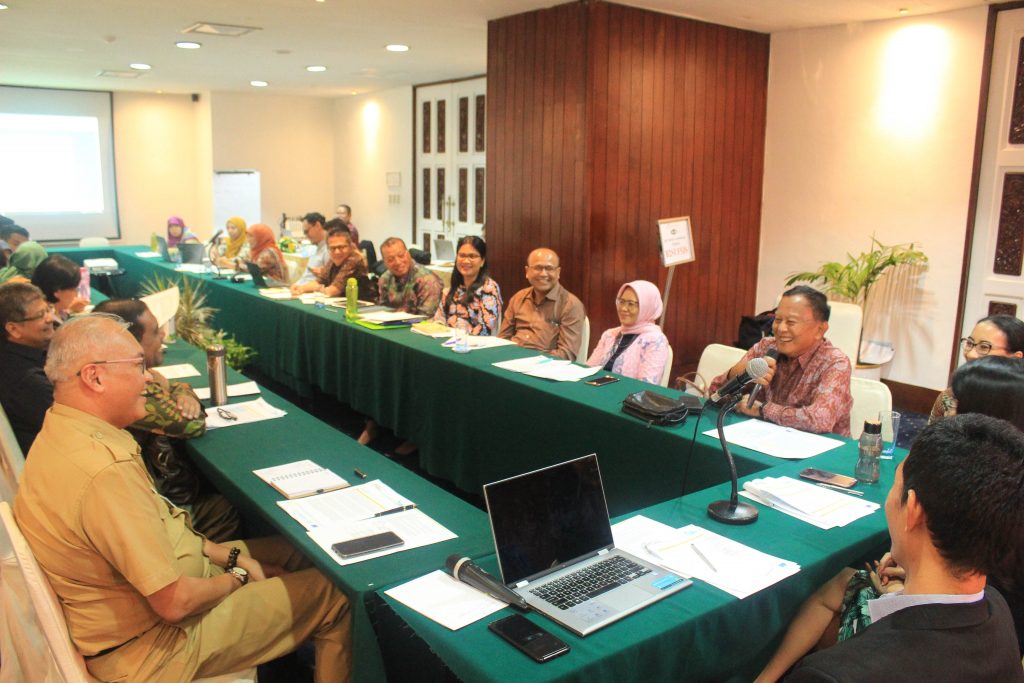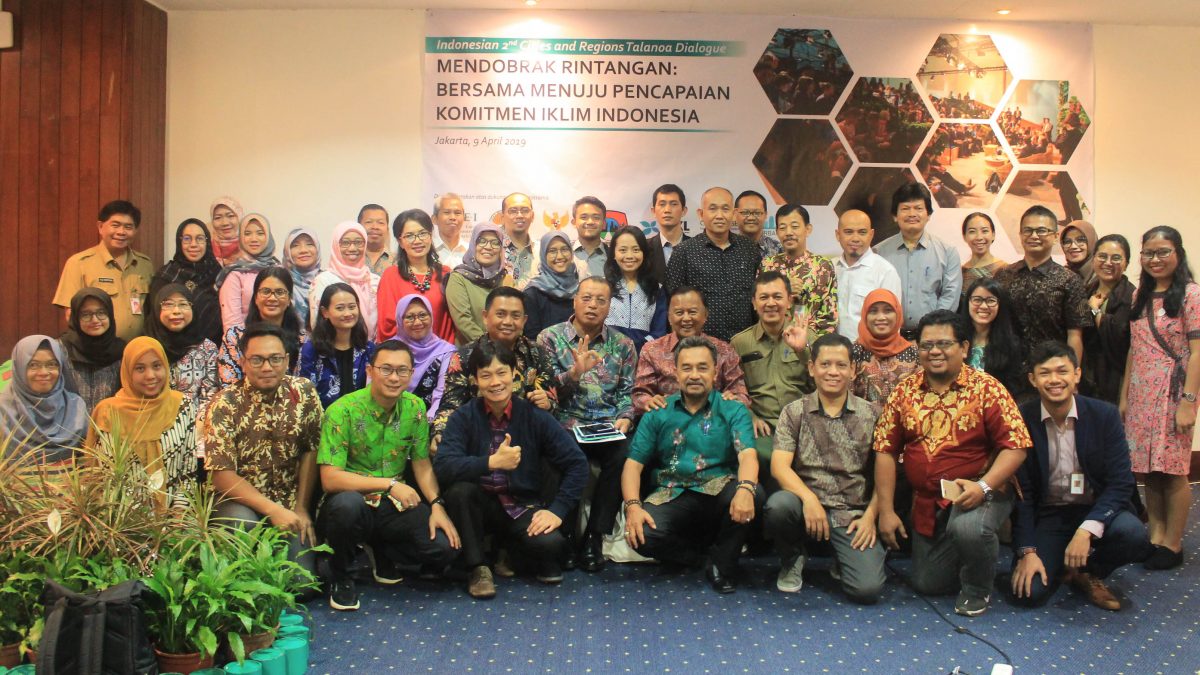
DKI Jakarta showcases public transport, climate village to other IDN cities and regencies
April 20, 2019
Indonesia and Laos Exchange on Low Emission Development, completed
April 29, 2019Jakarta, Indonesia – Yayasan ICLEI Local Governments for Sustainability Indonesia, together with the Ministry of Environment and Forestry (KLHK), the Association of Indonesian Municipalities (APEKSI), and Sustainable Districts Association (LTKL), organized the 2nd Indonesian Cities and Regions Talanoa Dialogue on 9 April 2019 at Sari Pasific Hotel, Jakarta.

With the theme, Breaking Barriers and Working Together to Ensure the Achievement of Indonesia’s Climate Commitment, the dialogue serves as the culmination of a series of city-to-city and city-to-province discussions conducted throughout 2018. The Cities and Regions Talanoa Dialogue aims to surface insights and inputs from various stakeholders the achievement of Indonesia’s national greenhouse gas emissions (GHG) emission reduction targets. In their National Action Plan for Greenhouse Gas Emissions Reduction (RAN-GRK), Indonesia aims to reduce GHG emissions by 29% in 2030.
Mr. Rachmat Witoelar, President’s Special Envoy for Climate Change (UKP-PPI), served as the keynote speaker at the dialogue. Reiterating the challenges that cities face in terms of climate planning, Mr. Witoelar noted, “National agencies, international stakeholders, and the community should work together to address difficulties related to data collection, capacity building of technical staff and policymakers and the institutional barriers we have at present”.
Underscoring the significance of multistakeholder cooperation to achieve national climate action plan, Mr. Ignatius Wahyu Marjaka, a representative from the Directorate General of Climate Change of Indonesia’s Ministry of Environment and Forestry (KLHK), likewise stated, “Our NDC can only be achieved through the active participation of stakeholders in all stages — planning, implementation, monitoring and evaluation, and up to the reporting stage. Integration and synchronization of central government programs with local government programs with careful planning is the key to achieving NDC targets in the context of low carbon development and climate resilience”.

Mrs. Sudhiani Pratiwi from the National Development Planning Agency (BAPPENAS) gave a brief overview of the national government’s existing strategies to implement the RAN-GRK. In her presentation, Mrs. Pratiwi shared that the commitment to address climate change is included in the national medium-term development plan (RPJMN); spanning the years 2020-2024. The RPJMN 2020-2024 will be Indonesia’s first low carbon development plan.
LOOKING BACK, SETTING SIGHTS AHEAD
Every Talanoa Dialogue follows three guiding questions: where are we now, where do we want to go, and how do we get there?. In this Cities and Regions Talanoa dialogue, the participants were given the platform to discuss amongst themselves and ponder on their role in achieving Indonesia’s NDCs.
Assessing their current situation, the participants shared their achievements and challenges on climate action in order to support Indonesia’s climate commitment on several sectors, particularly waste, energy, industrial processes and product use (IPPU), land use, land-use change and forestry (LULUCF), agriculture, resilience, and climate change adaptation. They also discussed the role of government institutions in planning and implementing strategies to address climate change.
Highlighting the need for multistakeholder collaboration to forwarding resilience and low emission development, Mr. Suryanto, Head of Environmental Agency of Balikpapan City stated, “Local governments should sit together to share initiatives, harmonize local climate action plan and address its challenges.“
Setting their sights to the future, the participants noted that funding opportunities can be a good leverage to ensure successful implementation of climate-related strategies and activities. Access to funding opportunities provides local governments with an opportunity to plan and develop feasible, bankable projects that support their climate action goals.
Participants of this dialogue agreed that coordination among national agencies, local and regional governments, the private sector, academe, community members, and other stakeholders is important in achieving Indonesia’s national GHG emissions reduction goals.
CONVENING THE NATIONAL ADVISORY GROUP (NAG)

After the Indonesian 2nd Cities and Regions Talanoa Dialogue, Yayasan ICLEI Indonesia also organized the first National Advisory Group (NAG) meeting. The NAG is a multi-sectoral group comprised of representatives from relevant government agencies and key development partners.
The meeting deliberated the results of the 2nd Cities and Regions Talanoa Dialogue. Attendees also clarified the roles, functions, and communication mechanisms which the NAG will follow. The group agreed that they shall convene at least once a year to discuss relevant projects and strategies that are being implemented by national and local government agencies, development organizations, institutions, and others. The advisory group may also meet more than once a year as the need arises. The agreements of each meeting are to be processed and submitted as recommendations to relevant institutions, government agencies, and other parties.

